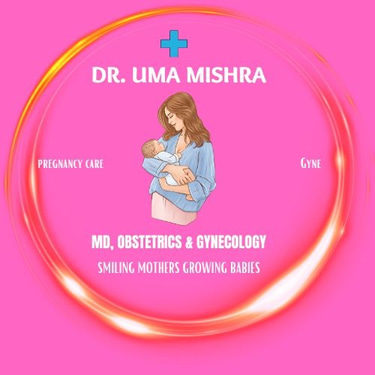The Risks of Smoking During Pregnancy
2/18/20242 min read


Dr Uma Mishra, Gynecologist explains the disadvnatages of smoking during pregnancy. why you should say strict no to smoking during pregnancy? Read below for more.
Smoking during pregnancy poses significant risks to both the mother and the baby. It increases the likelihood of pregnancy complications and can have long-lasting effects on the health of the child. As a gynecologist, I strongly advise women to quit smoking during pregnancy or when planning for conception.
The Impact on Pregnancy
When a pregnant woman smokes, harmful chemicals from tobacco enter her bloodstream and pass through the placenta to the developing baby. This can lead to various complications, including:
Low Birth Weight: Babies born to mothers who smoke are more likely to have a low birth weight. This can result in health issues and developmental delays.
Preterm Birth: Smoking increases the risk of delivering the baby prematurely, which can lead to respiratory problems and other complications.
Placental Problems: Smoking can damage the placenta, reducing its ability to provide oxygen and nutrients to the baby.
Higher Mortality Rates
Effects on the Baby
Tobacco smoke contains thousands of harmful chemicals, including nicotine and carbon monoxide. These substances can have detrimental effects on the baby's health, even after they are born. Some of the potential consequences include:
Respiratory Issues: Babies exposed to smoke in the womb are more likely to develop respiratory problems, such as asthma and bronchitis, later in life.
Increased SIDS Risk: Sudden Infant Death Syndrome (SIDS) is more common among babies whose mothers smoke during pregnancy.
Developmental Delays: Smoking during pregnancy can affect the baby's brain development, leading to learning disabilities and behavioral problems.
The Importance of Quitting Smoking
Quitting smoking is crucial for the health and well-being of both the mother and the baby. It is never too late to quit, as the sooner you stop smoking, the better the outcomes. Here are some steps you can take to quit smoking:
Seek Support: Talk to your healthcare provider about your desire to quit smoking. They can provide guidance and recommend resources to help you quit.
Create a Plan: Set a quit date and develop a plan to deal with cravings and withdrawal symptoms.
Avoid Triggers: Identify situations or activities that make you want to smoke and find alternatives to cope with them.
Stay Active: Engage in regular physical activity to reduce stress and distract yourself from cravings.
Stay Positive: Surround yourself with supportive people and remind yourself of the benefits of quitting for both you and your baby.
Quitting smoking is challenging, but the benefits far outweigh the difficulties. By quitting, you are giving your baby the best chance at a healthy start in life and reducing your own risk of pregnancy complications. If you need help or guidance, don't hesitate to reach out to your healthcare provider.
Remember, every step you take towards quitting smoking is a step towards a healthier future for you and your baby. Visit Dr. Uma Mishra at https://maps.app.goo.gl/WUBWCuW7rpZuvC8F9 for best advise on pregnancy care.
